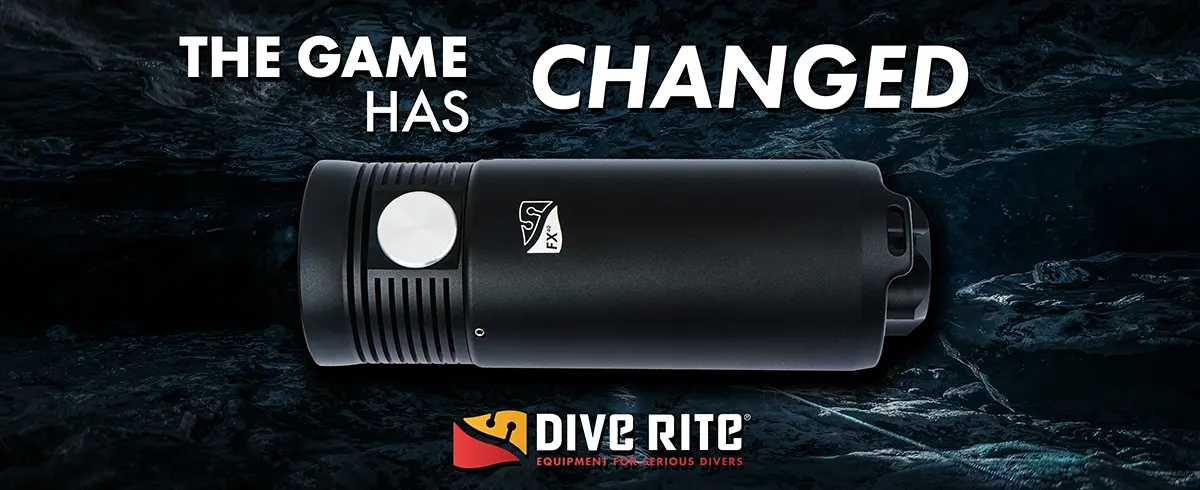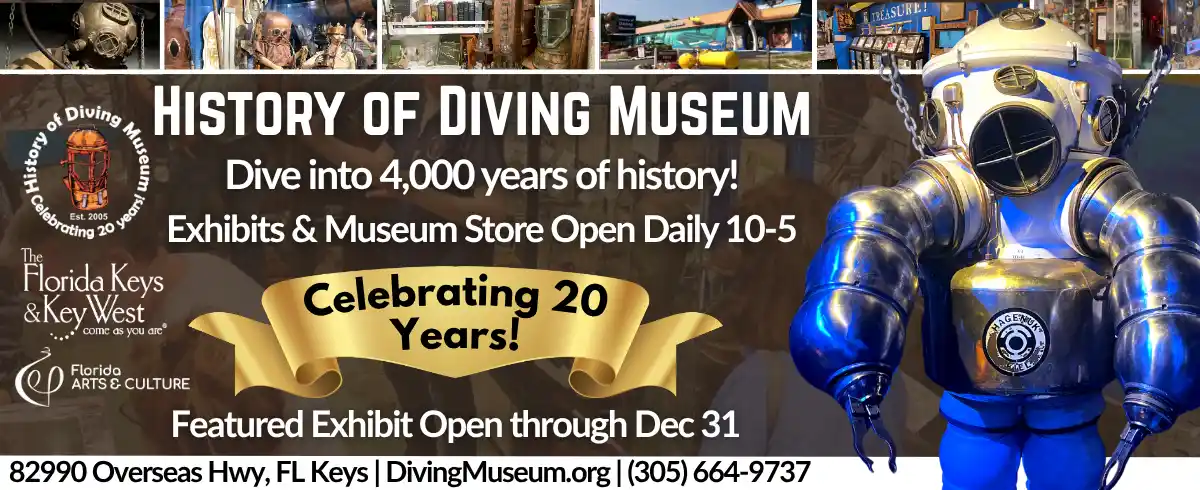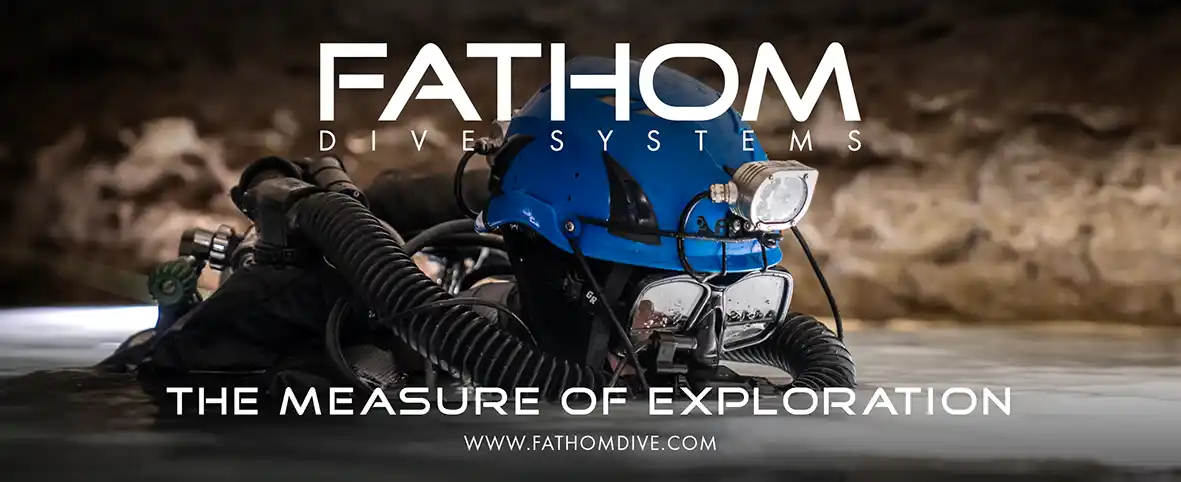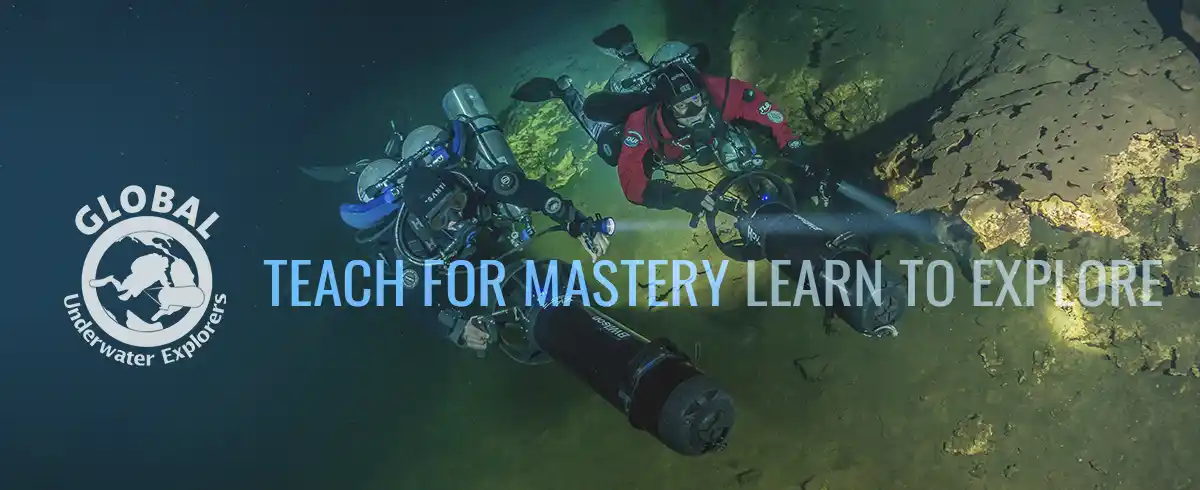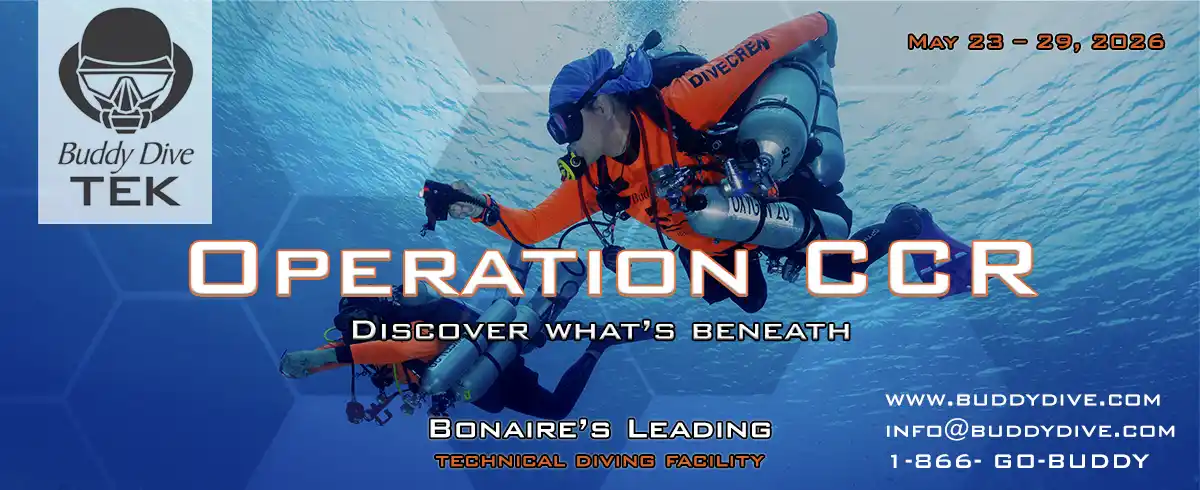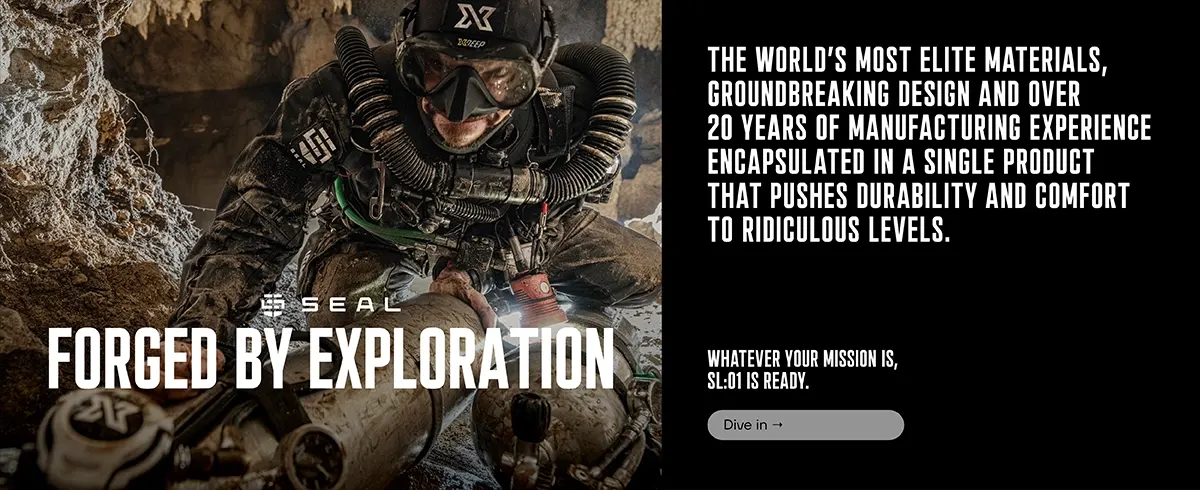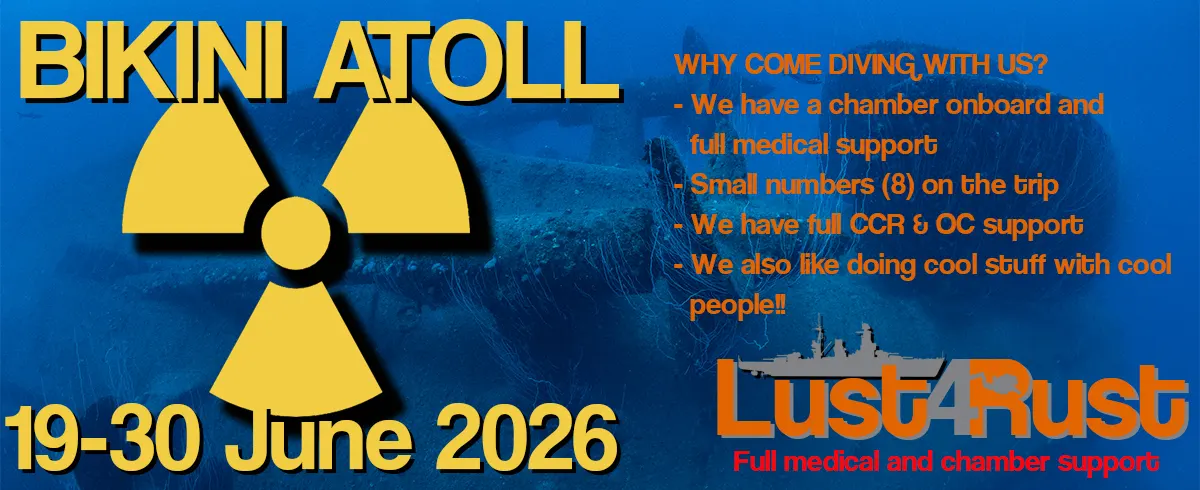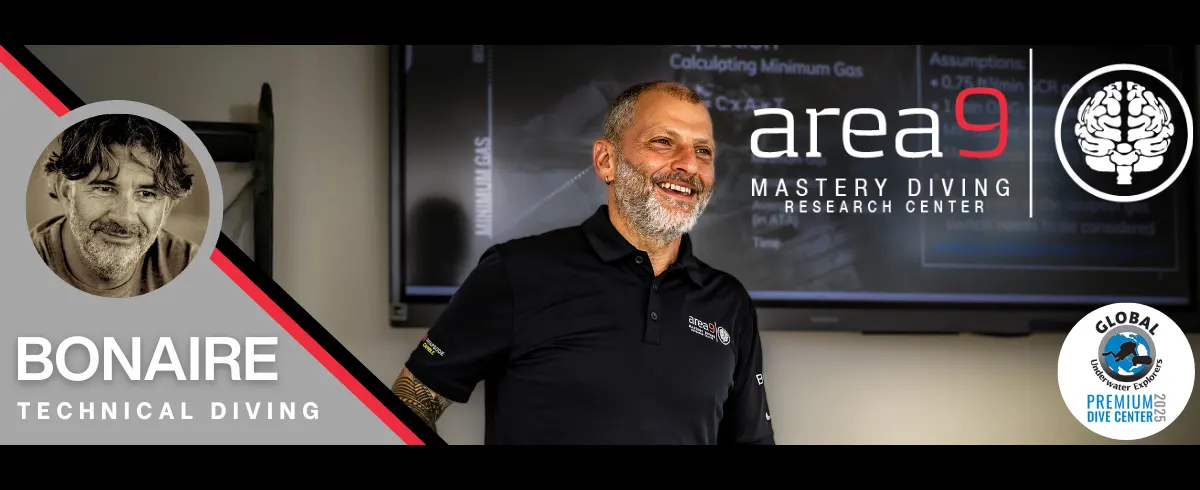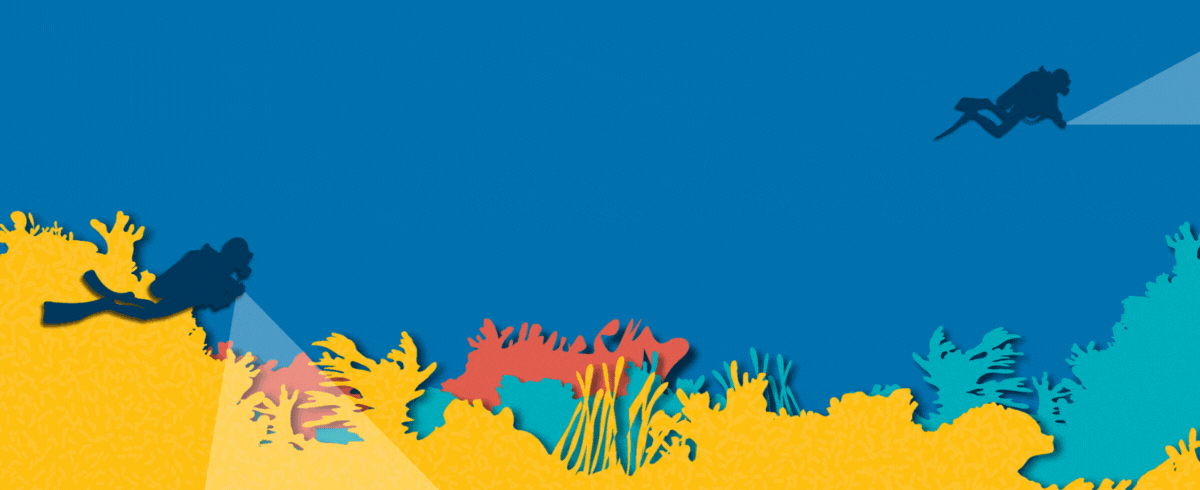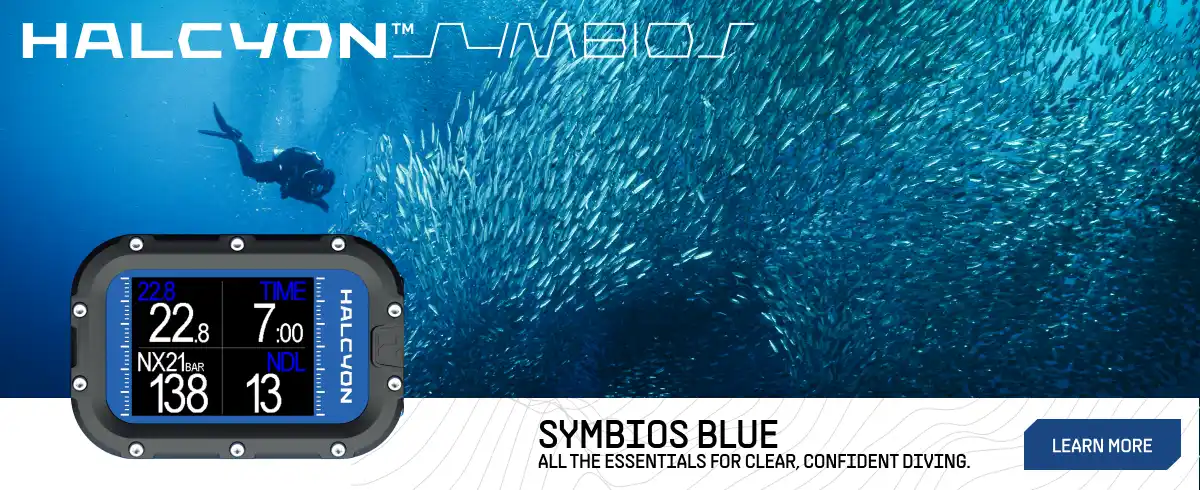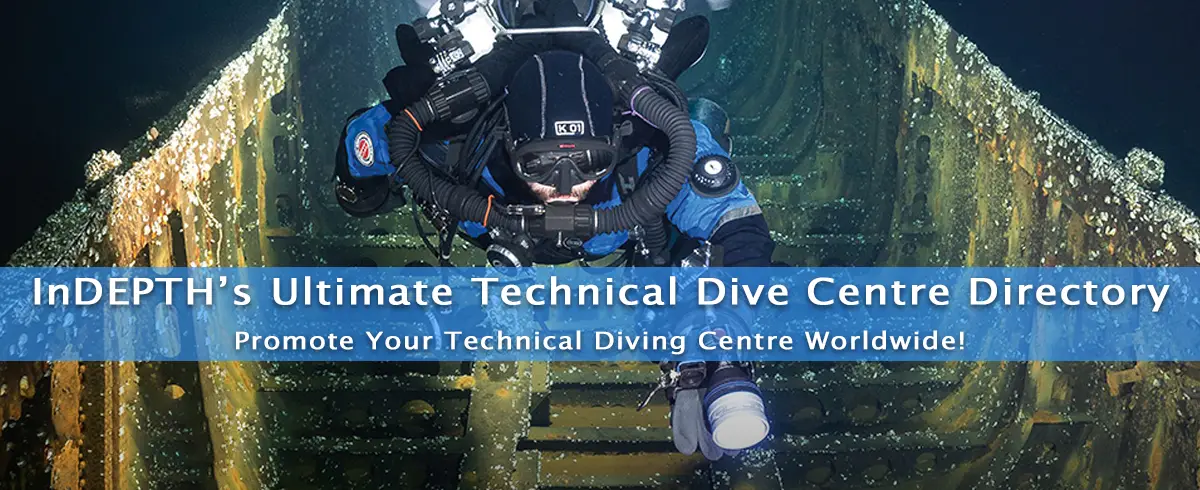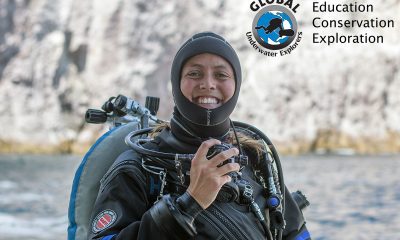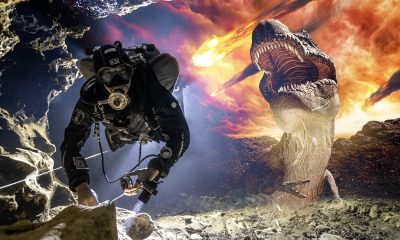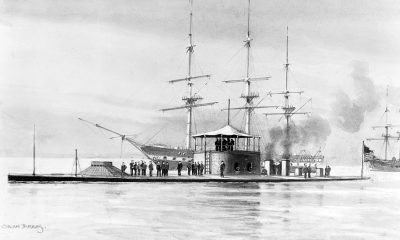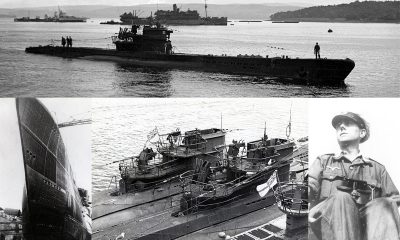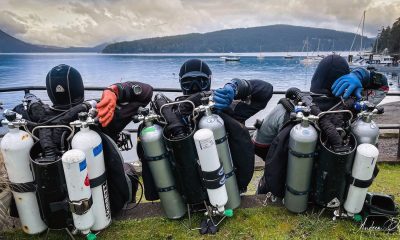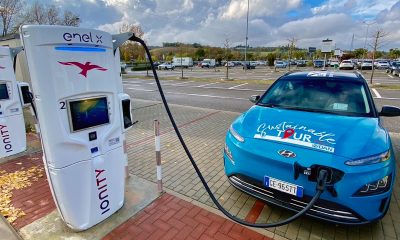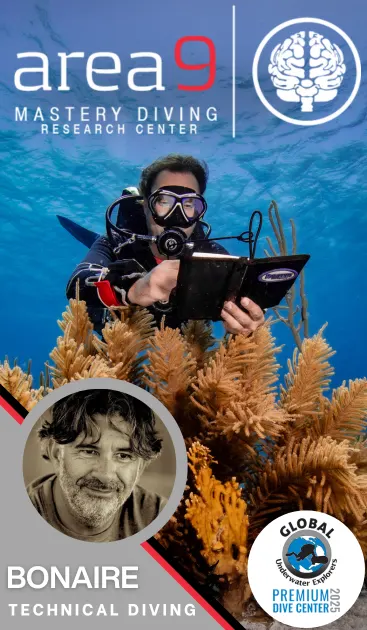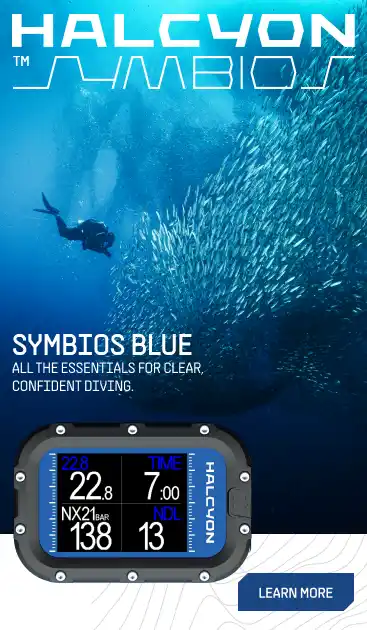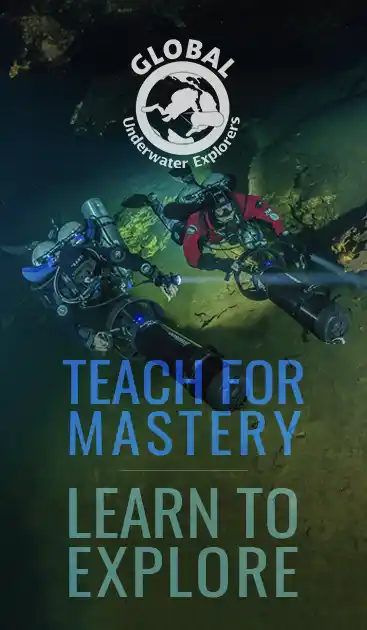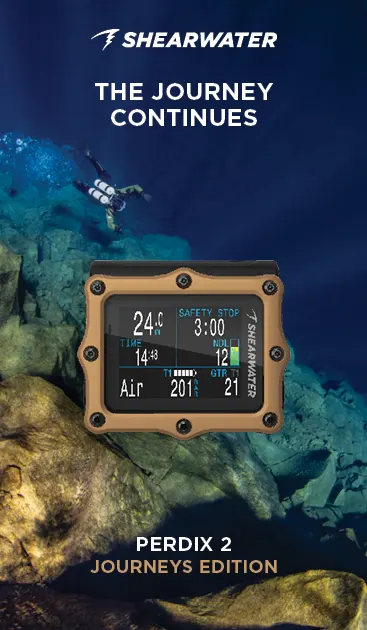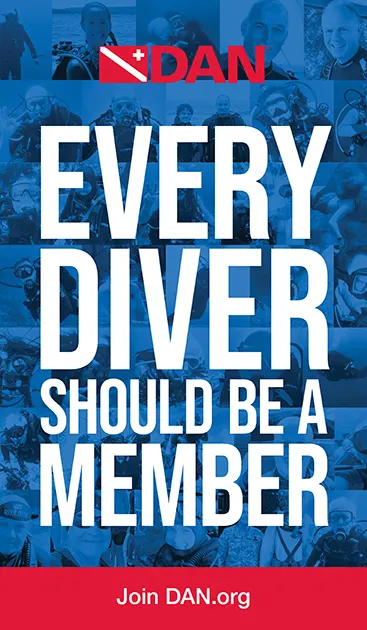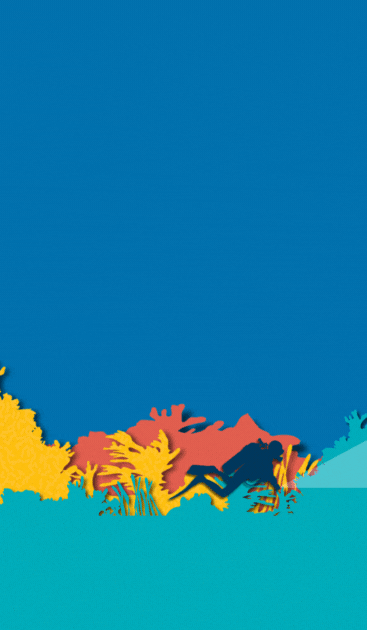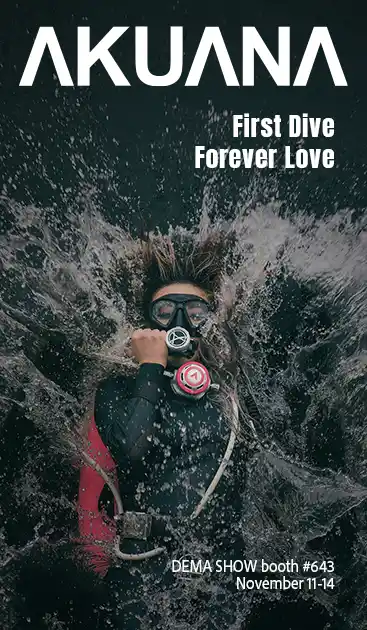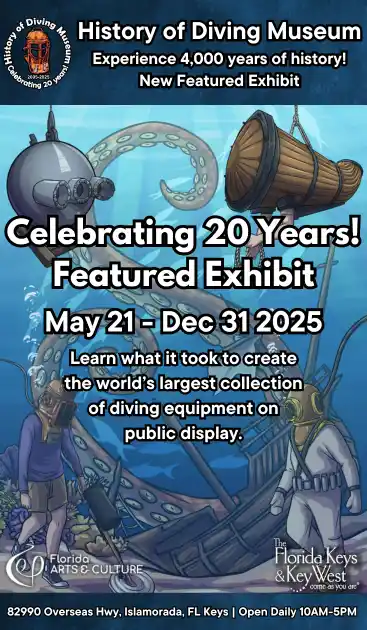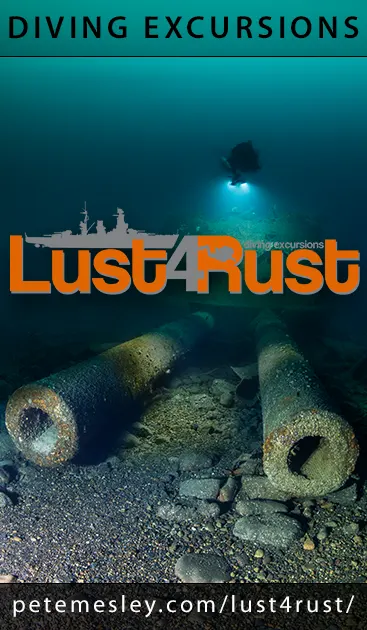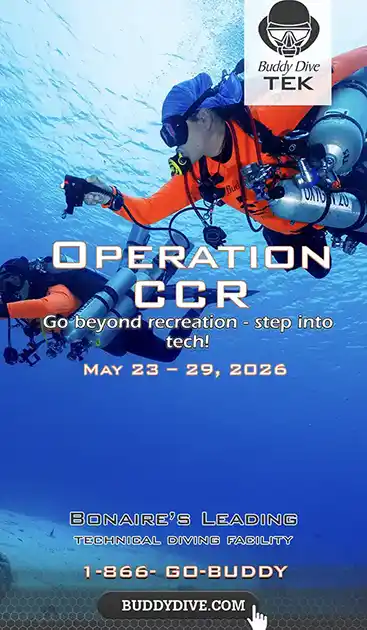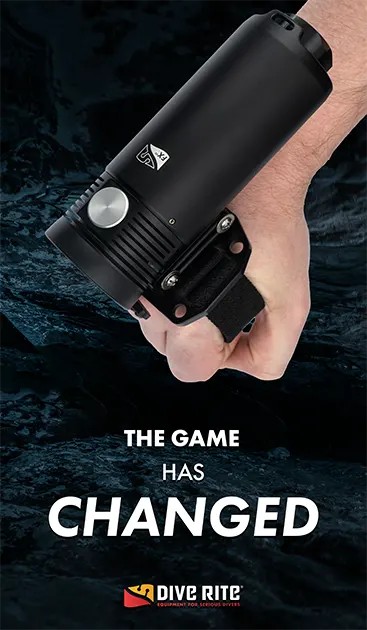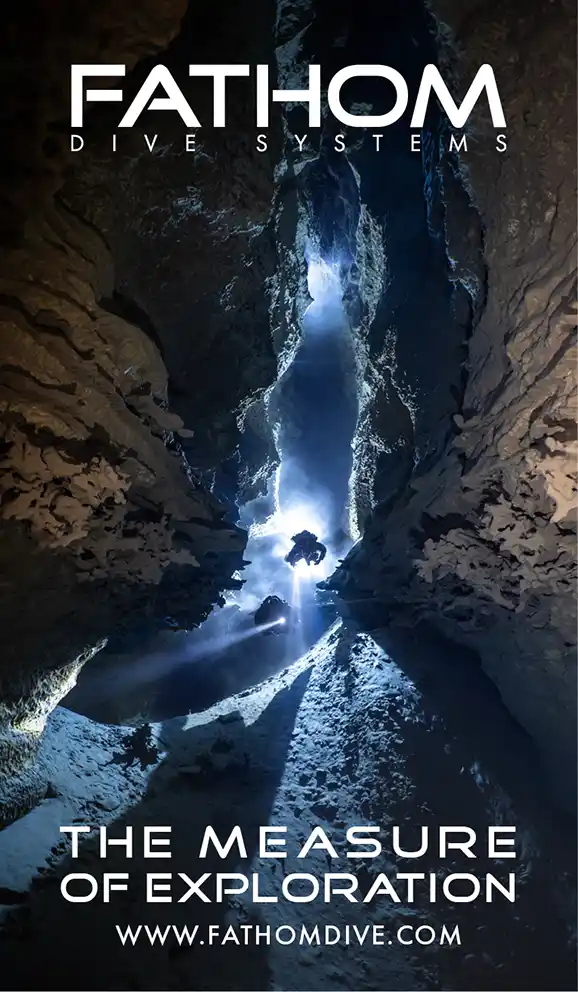Community
Divers Helping Divers: Next Stop Ukraine
What can one diver do to change the world? Ask tech diver and fitness instructor Kenzie Potter Stephens, who is completing her undergraduate studies at KIT in Germany. Kenzie and her impassioned team reached out with open hearts to help fellow Ukrainian divers. The results? They conducted ten 1500km car caravan trips, ferrying supplies to the embattled country. They also bravely rescued and found homes for nearly 200 Ukrainians. Divers make a difference!
Text and images by Kenzie Potter Stephens. Lead image created by Rico Besserdich.

As divers, we often speak of community, teamwork, the effective use of energy, and applying a holistic approach to both our dives as well as our lives. I would have easily said I knew why these principles were so important; however, it is only recently, when under fire, their true meaning became clear to me.
News of the war in Ukraine is a constant in our lives. We are inundated with images of unimaginable crimes against humanity and are horrified to witness mass genocide in this country. In Europe, massive crowds of refugees needing help is a common topic of concern. It is exhausting to be confronted daily with our own fragility and mortality and to be disturbed in our own little worlds with our own little problems—problems that pale in comparison to those of those refugees.
I can fully understand anyone who is overwhelmed or even annoyed by the constant coverage. When the war first broke out, I found myself glued to my phone in utter and complete shock. I had trouble sleeping and would even awake at night to check the current death toll. Nowadays I, too, flinch as soon as I hear news concerning Ukraine, and my first instinct is to turn off the radio. So what changed?
Two months ago, feeling nervous on the morning of my last final exam for the winter semester, I was brushing my teeth when I realized I could no longer ignore the misery that surrounded me. I had grown up in the US Army; both parents served in one way or another. My father had done a few tours in Kuwait. My childhood had been spent with reminders of war—harrowing tales of tragedies, traumas, and heroism were part of my life’s narrative.
In spite of, or perhaps because of this upbringing, I had avoided both war movies as well as political discussions about “right” and “wrong.” But this was different. This war was within driving distance for me. This invasion was happening to people who shopped at the same stores I and my friends did, visited the same cities, and worked in the same businesses. This was personal.
Setting The Wave Into Motion
In a series of events that now seem surreal to me, I was able to set up a small team via social media (including platforms like Craigslist) consisting of equally motivated individuals within a 100-mile radius of my town. My husband and I canceled the much-needed vacation that was planned to bring us stress relief from our busy, safe lives, and I spread the word. I couldn’t quite place it at that moment, but something about shouting my mission out into the world seemed so daunting at that moment. Like a loose area of snow you somehow know is going to send off an avalanche that will change everything. And change everything it did.
Within a single day, hundreds of people reached out, made donations, sent well wishes, and our hallway began to fill with boxes–supplies and sleeping bags. The response was overwhelming, and I canceled my fin-swimming training in order to process and sort the sheer volume of donations. As a dive instructor in training, I am generally in close contact with other diving instructors, and one has become a great mentor to me. Immediately, he connected me with a dive colleague of ours, Igor Siryk, located in Poltava, Ukraine. Within minutes we had aligned our missions and created a joint plan on how to get him humanitarian aid. My thrown-together team asked me if I knew him personally, to which I said: “The world is full of divers who are close friends that you just haven’t met yet”.
The financial support following my shout out was so massive that I made two of the largest in-person purchases I had ever made in my life (aside from my drysuit). Never would I have imagined myself walking into a German army shop and plainly stating, “I need to equip an army with protective gear. Here is $2000.” After loading up on boots, camouflage nets, propane stoves, backpacks, binoculars, and such, I headed over to an electrical shop and bought every single external battery pack and heavy duty flashlight I could find, amounting to around $1500.
Both shops gave a 5% discount and wished us good luck. Still, the final stop to the grocery store in the same building for food for the next few days was what really touched me. As I pushed my cart full of electrical supplies past the cashier, I was prompted to produce a receipt. In doing so, I explained the mission and on the spot, the cashier opened her wallet and with tears in her eyes, handed me the last 10 Euro she had.

The next day, our team packed their cars and finally met for the first time. Rolling up to the tee: The managing director of “Carbon-Scooter,” who was also part of our local diving community, whose daughter had photographed my wedding, and who now had a bus load of valuable medical supplies for our new friend, Igor Siryk.

Our convoy consisted of four cars with 16 free seats, seven drivers, and a ground crew that supported us from our starting point in Stuttgart, Germany. Despite being complete strangers, the meeting felt familiar and exciting, like old friends who were casually loading up buses to head off to a place no one had actually been before. Around 8 pm on Friday evening, about a week after the invasion of Ukraine, we were off.

The Helmet City
Twenty hours later we arrived in Chelm, (pronounced: Helm, literally meaning helmet–quite fitting to our mission) Poland, which was 10km/15 miles from the Ukrainian border. Igor had given us the contact information of a Polish logistics company that would bring our donations directly into Ukraine and to the cities needing it most. After finally finding the correct truck lot and office, we then engaged in a conversation between all parties in six different languages: Polish, German, English, Ukrainian, Russian.
The initial confusion and exhaustion from the road was so large that it even took us a full 15 minutes to understand that one man spoke only Dutch, and could not, in fact, understand a single word of the information we had translated into Polish for him. After a good laugh, the mission continued. One team unloaded the boxes, the next worked together to label each box in Ukrainian, and the last loaded it into the storage space where it would be held for the night, before getting driven to Poltava, Ukraine.
Seeing our boxes stacked up, ready to go, with a team full of strangers working together hand in hand was really quite moving. Finally, we had the feeling that we could actually make a difference.

A List Of New Homes
Knowing we had to be exhausted, but unable to feel it, we jumped back in the car and headed over to the local refugee camp, where it had been suggested we would find refugees wanting to travel to Germany. The lobby of the converted gym was full of people with yellow vests, smiles, and rosy cheeks and, in contrast, those with exhausted eyes, small children, and trash bags and suitcases filled with the only belongings they could carry.
As soon as I stepped foot inside, my diver brain immediately shut down any feelings of panic and grief. This sight triggered my full task-solving mode. I, along with two other drivers, found our way to the head volunteers and stated our case. Anton, one of the only English speaking volunteers there, nodded and told us that borders were chaotic, the people were scared, and the realization that they were homeless had oftentimes not yet set in.
A new busload of people poured out into the parking lot and hurried in from the cold, and Anton made a list with 16 free seats. Seconds later, we were surrounded by a crowd of people all trying to “buy passage” to a new home. Ann, 17, spoke English and said she would take anything that got her and her mother somewhere safe. Lena had her six-year-old daughter’s hand clenched in hers as she desperately explained that two additional families would be arriving in the night. If we could only wait, they would go with us, she promised. Olena was a 40-something-year-old woman with a stern, calm face, who said she was alone and had no family to be tied to. She had only one question: “Is it safe?”.
Finally, there was one place left to offer. Lilly, a young mother who fought back tears and panic, had a four-year-old daughter and asked if we would take her child alone, that there was family waiting, and she needed to get her little girl 900 km/550 miles to Dresden, Germany. Unable to imagine allowing that child to travel all that way without her mother, the other mothers agreed to squeeze together in order to make room for one more.
Still more people had gathered around us, talking to Anton, or to me, or anyone who would listen, but our cars were more than full, and we were forced to turn them down. When our part was done, we spent a short night in an old barn that had been converted into guest rooms. Sitting together before bed, we all agreed this would not be our last trip.

The next morning, we picked our 17 people up from the camp and set out on the journey “home” – 17 hours, 1500km/900 miles, away. At about halfway, we met up with Lilly’s brother-in-law. As soon as Lilly and her daughter got out of the car, the brother-in-law’s own daughter who couldn’t have been older than four herself, hugged the Ukrainian girl tight, stroked her hair and told her that everything would be okay, she was safe now.
Before leaving with the other 15 Ukrainians, Lilly asked me via Google Translate if I could pick her up the next week on my way back to the border for the second trip. She explained that her son and husband were still over there, but that she needed to bring her daughter to safety. (Note from the present: Lilly ended up spending three days with her daughter and family before we brought her back to the border, where she got a ride with our truck driver back to her husband and son, where she remains to this day).
Finally, around 5 am on Monday morning, we arrived in Stuttgart and Karlsruhe, Germany, where friends and family of ours had previously offered to take in anyone needing a home. Despite the exhaustion, the Ukrainian families all perked up once more as they met their new families and realized for the first time that we were in fact helping them, free of cost, no strings attached. I was convinced I saw the mothers breathe for the first time in days, knowing their little ones would have a bed instead of a train floor to sleep on. Olena hugged me with teary eyes, before she gifted me her cloth bracelet in Ukrainian colors and hurried off into her new room.
After more than 50 hours of driving and little sleep, our team who started as strangers felt like a family that had always known one another. Without bureaucracy, more than two days of planning or meetings, we had changed 17 lives and had seen the worst and best of what this war meant. Finally, sinking into my safe, first world fluffy bed, the mission without “deco stops” fulfilled, I was able to decompress, sob, and realize what had happened.

A Status Update Grown Into A Full-Blown Operation
The week after our first tour to Poland was by far the hardest. There was a severe sense of some sort of culture shock or perhaps secondary shell shock from something so significantly different from the kind of life any of us had previously experienced. Everyone was certain that we needed to help more, better, and bigger.
Now that we had physically been there, had talked to people in the middle of it all, and had seen it with our own eyes, we knew there was work to be done. Any sign of government help had been missing in any and every place where it was obviously desperately needed. Thus, while the state heads were busy talking, we got to work planning and doing.
Cars
One point was clear: driving private cars required a high investment of drivers and small capacity for those seeking refuge on the way back. We needed to obtain some minivans or small buses in order to maximize our ability to help. In Germany, a car license allows you to drive with a maximum of eight passengers, besides the driver, before a commercial license is required. Thus our team made it a priority to find nine-seater buses.


Donations
Once we overcame our initial difficulties communicating with the logistics company, the head of the operation there – Anastasia – proved to be an absolute sweetheart and a real asset. Although we had no real proof yet that our donations would actually be arriving where they were needed most, we all shared the distinct gut feeling that they were on their way. We knew of the challenges even the largest organizations and governments faced in transporting goods into Ukraine, especially into the most affected cities. Our supply chain was certainly something special and unimaginably valuable. With a clear mission in mind, gathering donations continued.


Return trip
I must preface this point by saying that our drivers accomplish a huge feat. The trip to Chelm (Helmet City) takes about 20 hours, one-way. It is extremely taxing. It is difficult to sleep, the mind is riled up, the car is uncomfortable, and being a good co-pilot is a serious task. Still, the trip is harder yet on our travel guests. These people have been traveling via any and every mode of transportation: on foot, in buses, overfilled trains, trucks, tanks and even inside the occasional trunk. We tried our absolute best to make the transit to their “final” destination as comfortable as possible, but arriving after 20 hours of driving at 5 am was simply no longer an option. Mainly, this gave our Ukrainian guests no time to get to know their host families before they had to entrust their children, grandchildren, friends and themselves to complete strangers in the dead of night. Additionally, we were forced to face the reality that our first tour was full of people that had mainly fled before the war. The next waves of refugees would consist of increasingly traumatized and sick families and individuals.

By luck, chance, or perhaps fate, it just so happened that a fellow yoga teacher reached out to me. She had friends in Poland who wanted to help house the drivers or perhaps some of the refugees on our travels. These friends ended up having other friends, who had bought a house in need of renovation that was sitting empty until the craftsman shortage let up. Within just a few days, this group of friends rallied together and were able to come up with 30 cots, blankets, pillows, cribs, electrical heaters and children’s toys. They fixed the running water, and every weekend since then, the local kindergarten has supplied us with bucket loads of “Bigos,” a Polish national dish. Today, this place is proudly called “The Wroclaw Stop” (TWS) and is filled with memories from the travelers who have passed through.
Thanks to them, only one or two buses had to drive to Chelm to drop off donations to Anastasia’s firm “Magnolia Plus,” while the others drove to Wroclaw (Breslau), 600km/400 miles closer to home. Saturdays were spent gathering the Ukrainians, bringing them together in TWS, spending time with them, and creating a good foundation of trust and friendship. Sunday mornings at 8 o’clock, the TWS crew brought pancakes and toast, and the buses rolled out at 9 am. We arrived around 10 hours later with enough time for the Ukrainians to enjoy a warm meal with their hosts and get acquainted with their new surroundings before falling into their real beds.

Host families
A wonderful thing about placing Ukrainians with our friends and family is that their circles of friends and acquaintances witnessed the journeys of these desperate people, and they saw how they too could help. The circle widened. Today, we have an extensive list of hosts that we fall back on weekly. Many hosts reached out through the company “Bosch’s” intranet, others found us via news articles, our website, or Facebook. One of the saddest parts of many testimonies people give us when offering their homes is that they registered with their local city offices only to be told that creating a support network would take weeks. After more than ten weeks of experience, every single one of us can confidently say that the government had unfortunately failed in creating an effective network.
The application process for both sides is grueling. It’s slow, and almost impossible to understand. Private organizations have been more effective in helping many people out of refugee camps, off the streets, and into environments that actually allow integration. I myself took a group of our very first Ukrainians to register at the local city office where there was a serious lack of a clear plan on how to go about the registration process. Today, I am happy to say, many cities have been able to streamline the process, and welfare often arrives after just a few days or weeks. Unfortunately, the streamlined process is wholly unhelpful for thousands of people waiting in refugee camps unable to connect with host families due to government restrictions and bureaucratic red tape in Poland and Germany.
Refugees
Personally, I avoid this term wherever possible because I feel it is dehumanizing and strips these people of their personal identities —all of the experiences they’ve had, the skills and abilities they possess, as well as their unique opinions, beliefs, and feelings. Many of those who have traveled with us have since become great friends to whom I look up to, with whom I can enjoy a sunny day, or nonverbally share in their children’s most precious moments, without needing to share a language. These friendships motivate me to work toward making the trip easier for both sides. Nowadays we have many channels through which those seeking refuge can reach out to us and receive support.
Each week, the aim has been to get the full list of travelers by Thursday, generally amounting to something between 15 and 30 people. This allows time for us to find fitting host families. The assignment takes place on a basis of information such as the number of children, their ages, allergies, pets, stairs up to the rooms, medical conditions, personal needs such as peace and quiet vs. the opportunities that a bustling city offers, friends in proximity, level of assistance needed, and much more. Still, each week, no matter how much we planned and sorted, unexpected things happened. There was little left that would shock me at this point. Chaos has become a constant, and I have learned to live by the idea of “Plan the dive. Dive the backup plan x, y, and also z.”

The result? As of today, we have made 10 tours to Poland and have helped almost 200 Ukrainians travel to Germany and find refuge in private guest families. Within the first few weeks, our team and operation gained so much traction, that we finally founded our own not-for-profit organization. This allowed us to prove our legitimacy toward Ukrainians and donors, to apply for special NGO offers, and to issue donation receipts needed by many companies.
We have been able to borrow buses from various clubs and organizations, as well as from private individuals. We have received many generous monetary donations, and the best part is that every single cent goes 100% to the mission. There are no administration fees, no salaries to be paid, no rerouting: every dollar that goes into our account, leaves our account to help Ukrainians. We buy medicine at reduced prices for Poltava, Ukraine, shoes and diapers, canned food, and even bought a birthday cake for Igor, as a little surprise, in the height of war.
Season Tickets To The Hospital
Heartbreakingly, the war follows the people on their escape, and only one week of war was enough for us to feel the repercussions in Poland. Suddenly, almost every child we encountered seemed to be sick. By the time they arrived at TWS, their eyes had glassed over and their little bodies were hardly strong enough to hold the bucket in front of them, into which they threw up every ounce of fluid or solid food they consumed.
Our first experience was quite terrifying. A little boy could not even keep water down, and apparently hadn’t for a day. Upon asking, his mother admitted that they had been on a train for over 30 hours with no breaks. The small amount of food that was available on the train was soon gone. The children had thus been forced to live off chocolate and candy bars, their mothers thinking sugar being what they needed. In reality, their children were entering a dangerous state of malnourishment and their bodies were so out of balance, store-bought electrolytes had no effect.

We spent the better part of the night at a small local hospital, and while the boy was wheeled from doctor to doctor, I simply collapsed onto the most uncomfortable hospital chair, feeling overwhelmed, sad, and scared. Thankfully, the cocktail of vitamins, salts and other good stuff was able to get every child back to their strength. We have since become regulars at the hospital and often end up leaving families with sick children in Poland, and picking them up a week later, when the little ones had their strength back. What a sad thing to be in the habit of doing.

WARNING: The following text contains graphic and potentially upsetting information.
The Hardest Stories
A few weeks into our operation, I received a call from a stranger who had gotten my phone number from who-knows-where. This was normal by now and no surprise. I spent hours on my phone every single day communicating with Ukrainian people, hosts, drivers, companies, team members, and donors. The woman on the other line was Olga, who had married a German years ago and lived an hour or two away. She called requesting help to get her friend who was still in Charkiw, one of the hotspot cities on the eastern front of the war. The friend, Julie (not her real name), and her husband had decided to stay in Charkiw with their two children, one and four, in order to help cook for and feed the military.
One day, a Russian invasion group hit their building. Julie’s husband immediately grabbed the children and his wife and ran with them to a nearby bomb shelter, always staying a little behind and shielding them from the bullets. Just a few yards from the life saving shelter, Julie’s husband was shot dead while his children watched him collapse. In the shelter, Julie had to be put under sedation and was not responsive for days. By the time we picked her up from the border, we could hardly recognize her from the photos we had previously received of her. The children were fine. As far as they knew, their Daddy was in the hospital waiting to get better and would follow later. Today Julie lives with her children in Germany and is learning to cope.
Another call we received two weeks ago was from Igor. In general, Igor is a very sturdy, big guy. He doesn’t show much emotion, and he is lucky enough that his wife and children are also living in Germany with extended family. Igor has been in Ukraine since the beginning of the war and coordinates the humanitarian aid that we, and others, send to his organization “Humanist Poltava.” Every few days we receive short status updates from Igor mainly consisting of what is needed. The most recent have been tourniquets used to stop the bleeding with severed limbs and open wounds as well as a recent call with Igor close to tears, begging us for food, any kind, as the people are starving.

We have had fathers who were diagnosed with cancer in Ukraine, which prompted their wives to return with their children to spend the last days with them. We have had mothers who were so confused and scared by the unfamiliar language they returned to Ukraine in search of doctors that could help with simple medical conditions. Anna (not her real name) is also a mother of two with various problems that had already been serious before the war. She was left with two children born of situations beyond her control, leaving her to earn money by any means possible, and eventually using substances to cope, all the while loving her children and her country. The war has forced her to flee her home for the sake of her children, but her innate wish to fight for her country has left her confused and unstable. She had been passed around multiple homes and brought the best of people to their maximum helping capacity. The system has no place for people like Anna.
She is not in an abusive relationship which is “required” for many support offers; rehab would cause her to lose her children, refugee camps add horrific amounts of stress, and she has not been stable enough to register, so child services cannot work with her. How many more Annas have fallen through the cracks? Angela (name changed) is another gentle soul. She quickly became great friends with her host and the pair of them went through their days together as if they had known each other for years. The family dog loved her, the friends of Angela’s host loved her and her German skills had significantly improved in the past months.
A few days ago, she received an email from her work: she must return immediately or lose any rights to her job. With two dogs, a sister and a nephew relying on her to pay off the house, she was forced to pack her bags and take the next bus. Angela’s mother, who we had previously retrieved for her, remains in Germany, and Angela’s host communicates with her daily, their lives forever intertwined from now on.
NOTE: End of potentially triggering content. Please read on for the heartwarming part.
The Silver Linings
As I said at the beginning of this article, yes, I flinch when the news mentions Ukraine. I turn off the radio when they report where the troops have moved and how many civilians are left unevacuated. It does not make me, or anyone else who avoids the topic, a bad person. The reality is traumatizing and it can be suffocating to a point where daily chores feel difficult. But the reason we do it is for the beautiful moments. Seeing four-year-old girls consoling one another; knowing Angela and her mother have been reunited on German soil after weeks of fear, watching Anthony, the eight-year-old son of the family I look after in Karlsruhe racing to the German ice cream parlor on his new bike, reading Igor’s messages about how great a difference we make for Ukrainians’ lives, and having a picnic with all the Karlsruhe Ukrainians on a warm, summer day with only clouds in the skies. There are many more memorable, heart-warming experiences.

Our mission truly attracts the kindest-hearted people who give all they can with their entire heart and soul and who radiate genuine love. Today, we have been able to personally help almost 200 Ukrainians. But even if that number was only one, it would have been worth it. I have had the honor of meeting people who will inspire me for the rest of my life. Olga, Julie’s friend, has become a guardian angel who is just a phone call away from anyone I am struggling to communicate with or help. Dorota, Marek, Zu and the rest of the TWS crew have become partners. Ann, the 17-year old daughter from our first tour has become a great friend. I truly believe she is the strongest person I have ever met, and seeing her flinch in pain at loud noises and planes, breaks my heart.
Together we will win this war. We will stand together, help one another with every last penny we have and when this is all over, we will take a long trip through Ukraine, and let all of our new friends-for-life show us their life and culture. Slava Ukraini, and may the skies over your heads always be clear.
In Ukrainian: Разом ми переможемо в цій війні. Ми вистоємо разом, допомагаючи один одному останнім пенні, що в нас є і коли все це закінчиться, ми будемо довго мандрувати по Україні і наші нові друзі покажуть нам своє життя і свою культуру. Слава Україні і мирного неба Вам.
Dive Deeper
The team’s website is here: Süd-West Sonne für die Ukraine e.V. (South-West Sun for the Ukraine e.V)
Follow us on Instagram: @Suedwestsonne
Follow us on Facebook: Suedwestsonnefuerukr

Kenzie Potter Stephens is a production artist for InDepth as well as part of the GUE marketing team. She is currently working on two BS degrees in Industrial Engineering and Marketing, as well as Biochemistry at the Karlsruhe Institute of Technology (KIT) in Germany.
In addition to her activities as a yoga teacher and an underwater rugby trainer, she has completed her GUE Tech 1 and Cave 1 training and is on her way to becoming a GUE instructor. As a scientist, she is currently working within the Phreatic Organisation based in Cala Gonone, Sardinia, to research and protect the extensive cave system in the Gulf of Orosei.

